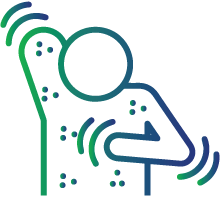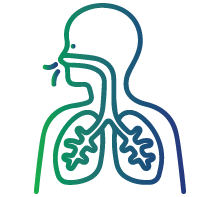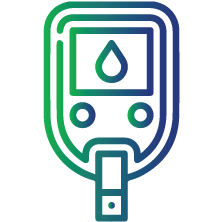
Candida Albicans Allergy
What is Candida Albicans Allergy Test
Candida albicans is a type of yeast present in our body. Our immune system and other bacteria in the body keep a good check on the growth of yeast. However, a few triggers may cause overgrowth and eventually lead to Candida albicans sensitivity, also termed yeast allergy.
A Candida albicans allergy test looks for the IgE antibodies specific to Candida albicans in an individual’s blood. This test helps determine if an individual is allergic to Candida albicans which is typically found in people with asthma and rhinitis.
Symptoms of hypersensitivity

Abdominal swelling

Itchy rashes

Breathing difficulties

Congestion

Dizziness

Joint pain

Gastrointestinal problems such as diarrhea, stomach discomfort

Anaphylaxis (a fatal reaction)
Who should get tested?
It is recommended for individuals who have:

Asthma

Diabetes mellitus

Compromised Immune system

Recurring yeast infections
Test preparation:
No special preparation is required for Candida albicans allergy test. It is a simple blood test where your healthcare provider will insert a small needle into a vein in your arm, collect a few mL of blood in a sterile test tube, and get it tested. Please talk to your healthcare provider if you are taking any medications such as antihistamines.
Interpretation of results
An allergy is typically indicated by a high level of IgE antibodies specific to Candida albicans.
|
Class |
Levels of specific IgE – Kilo Units per Litre (kU/L) |
Interpretation |
|
0 |
<0.10 |
Negative |
|
0/1 |
0.10-0.31 |
Low/equivocal |
|
1 |
0.32-0.55 |
Low |
|
2 |
0.56-1.40 |
Moderate |
|
3 |
1.41-3.90 |
High |
|
4 |
3.91-19.0 |
Very High |
|
5 |
19.01-100.0 |
Very High |
|
6 |
> or =100 |
Very High |
Deviations from the normal ranges:
- The presence of IgE antibodies in serum increases the risk of having an allergic illness.
- A higher total IgE level is frequently a symptom of allergies, including yeast allergy.
- In some cases, parasite infections are associated with elevated IgE levels.
FAQs
What is the turnaround time (TAT) for Candida albicans allergy test?
The test results for Candida albicans allergy are usually available after 6 to 7 working days after the sample collection. However, it could also take a little longer at times.
Are there any risks associated with Candida albicans allergy test?
No. There are no potential risks associated with Candida albicans allergy test. However, all blood tests come with an expense of negligible risks such as slight soreness or tenderness around the site of needle insertion.
Should I be fasting to undergo an Candida albicans allergy test?
No. You need not fast before undergoing the Candida albicans allergy test. It is a simple blood test that could be done at any time of the day.
If I am allergic to Candida, does it mean that I am allergic to all yeast products?
No. You may not necessarily be allergic to all yeast products if you are allergic to Candida albicans (a particular form of yeast). However, an allergy panel test is typically indicated if you are allergic to any one of the yeast products to understand any possible allergies.
Which foods should I avoid if I am allergic to Candida albicans?
You need to avoid a list of foods if you are allergic to Candida albicans. These include,
- High-sugar fruits – Banana, dates, raisins, grapes, and mango.
- Gluten-containing grains – wheat, rye, barley.
- Few types of meat – farm-raised fish, and deli meats.
- Refined oils and fats – Soybean oil, sunflower oil.

